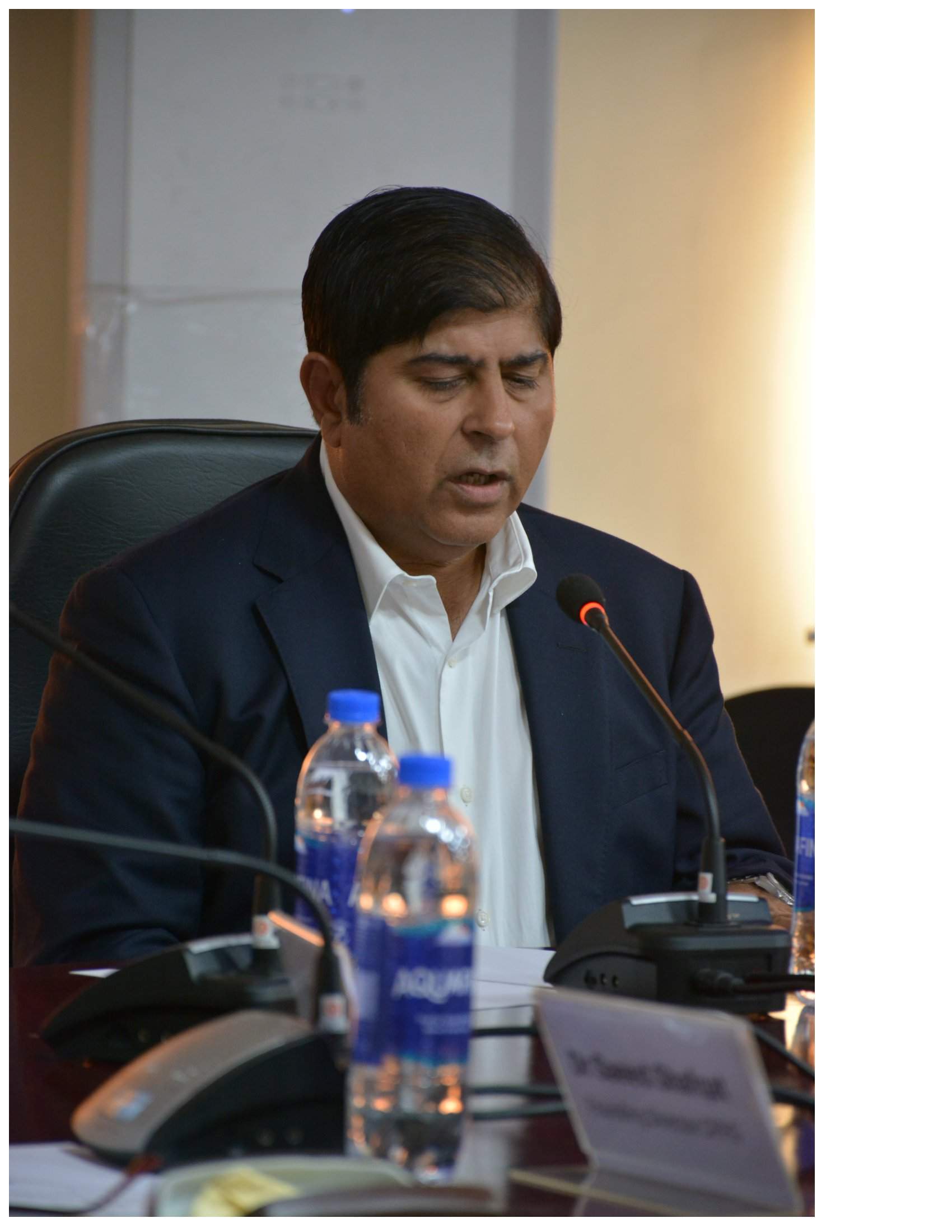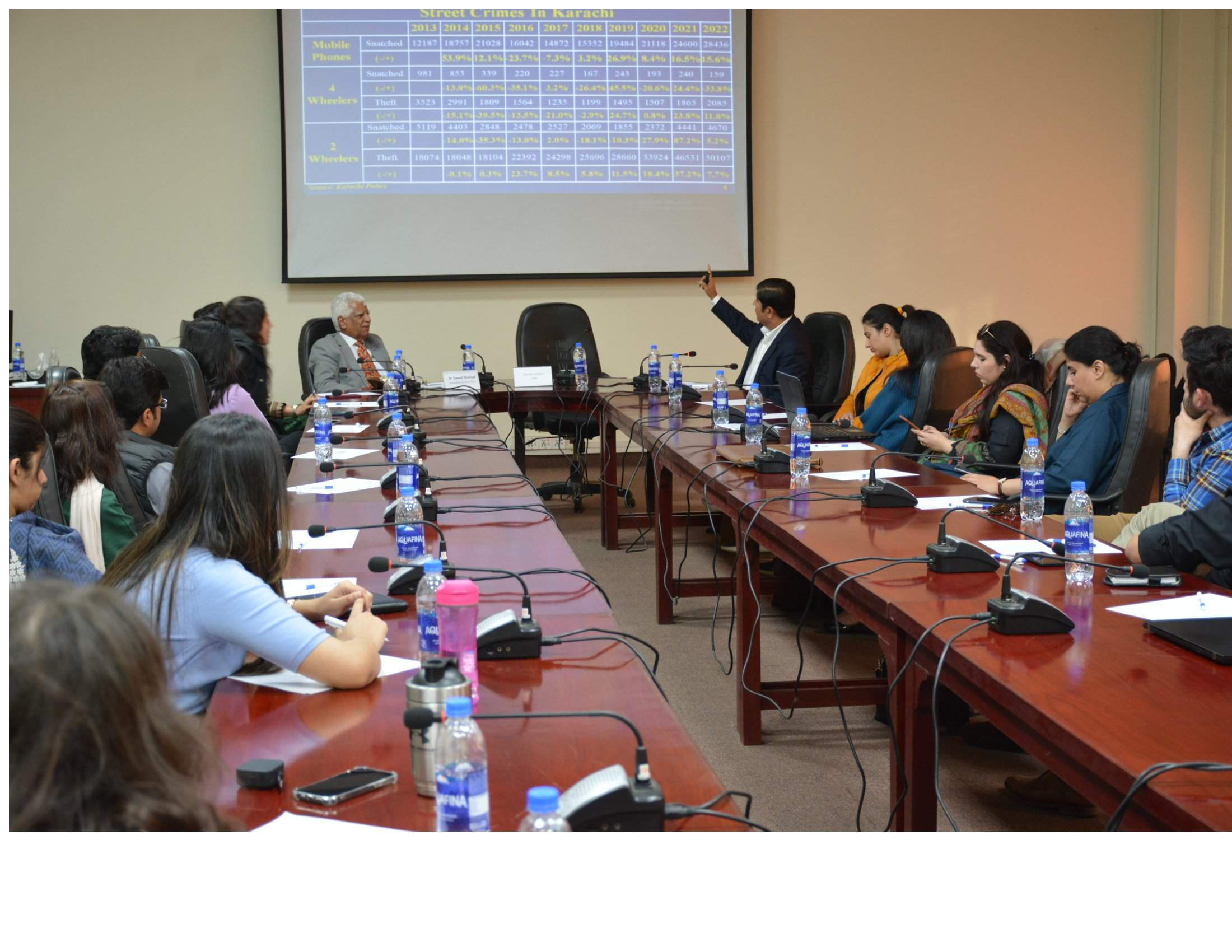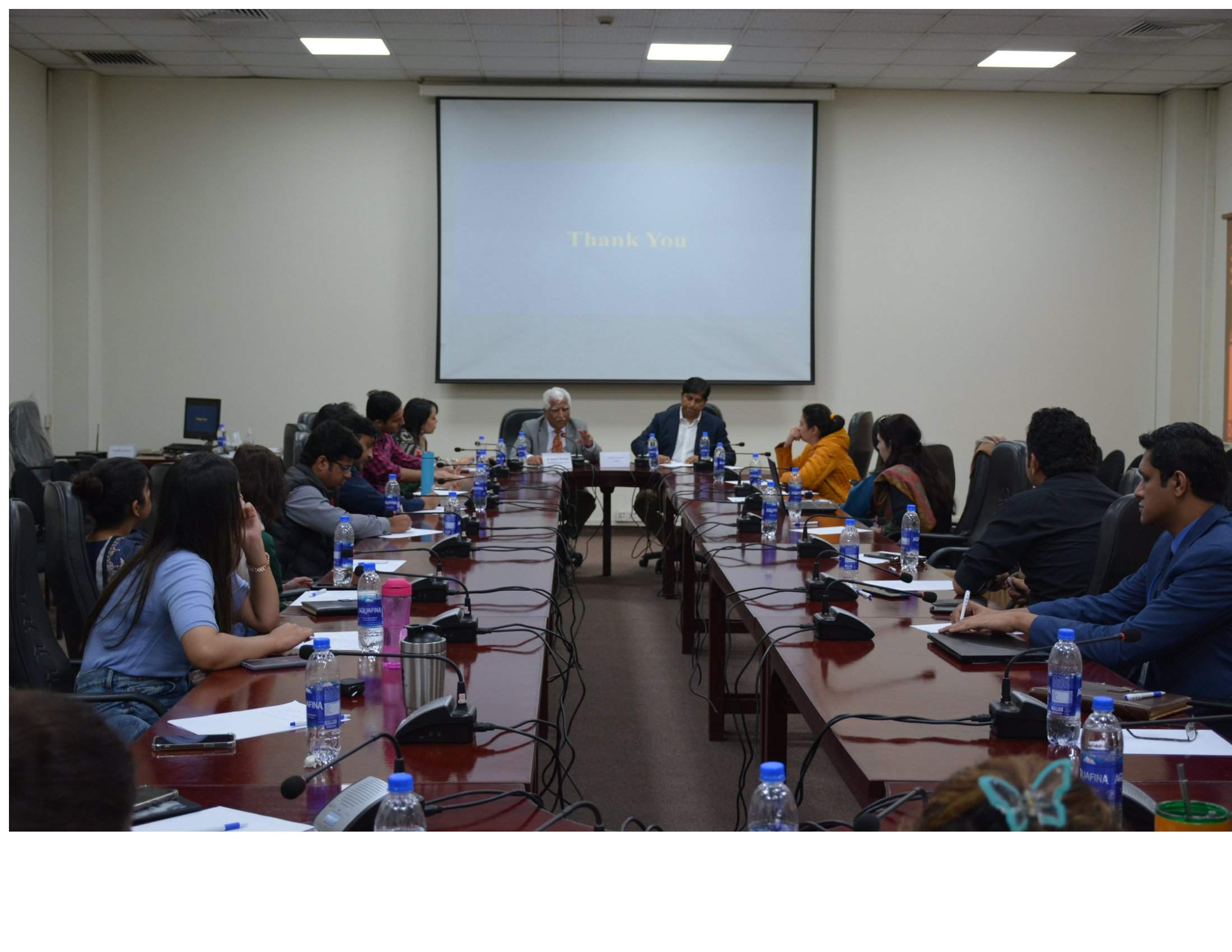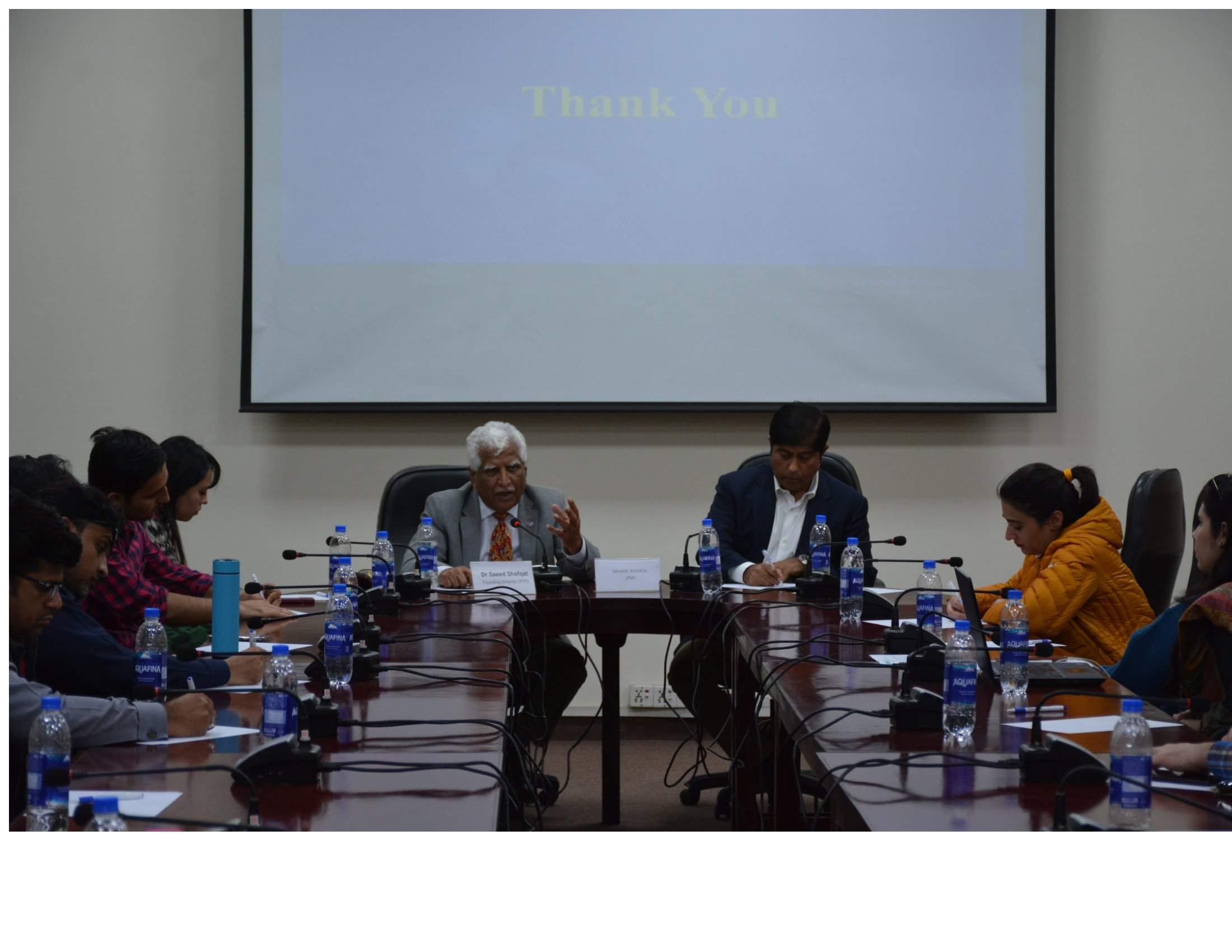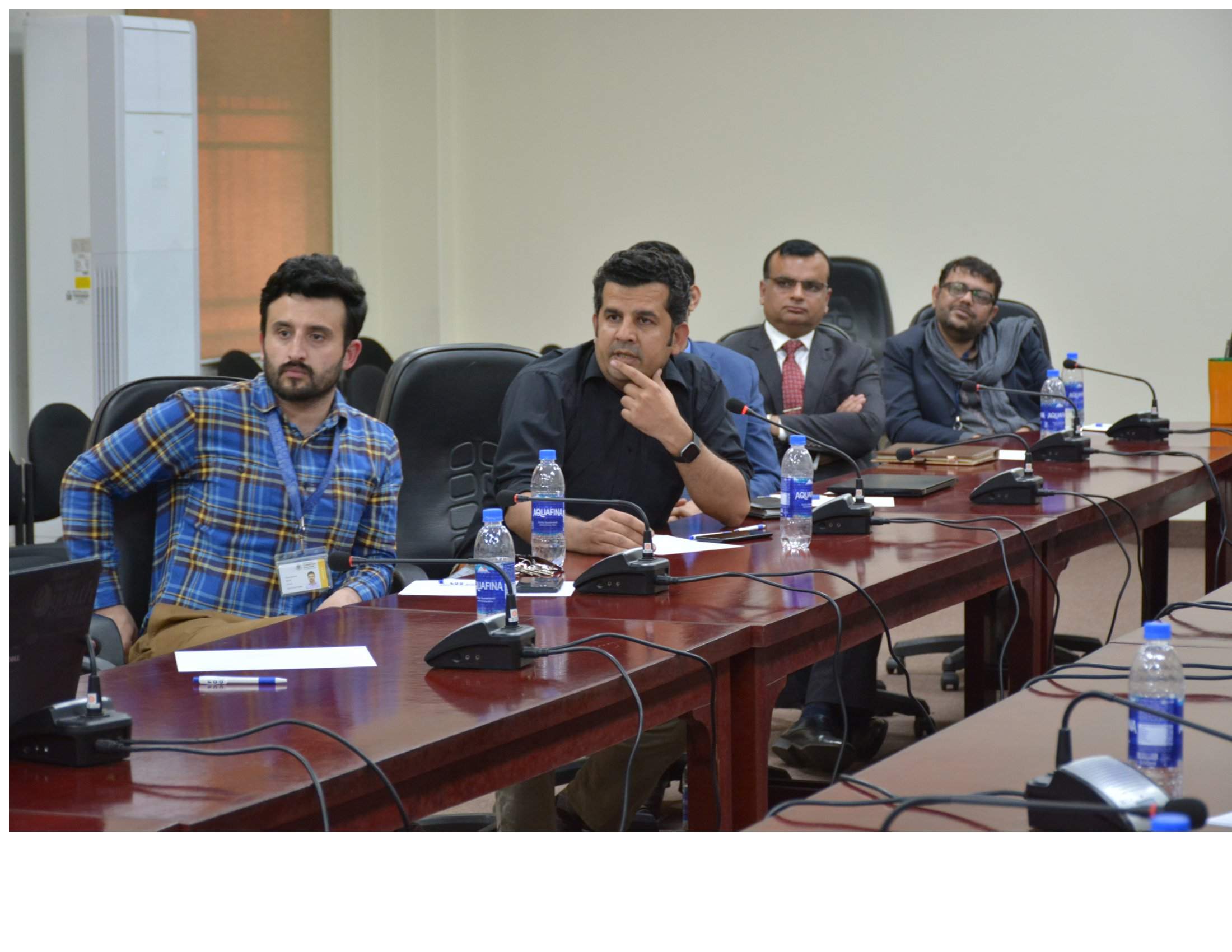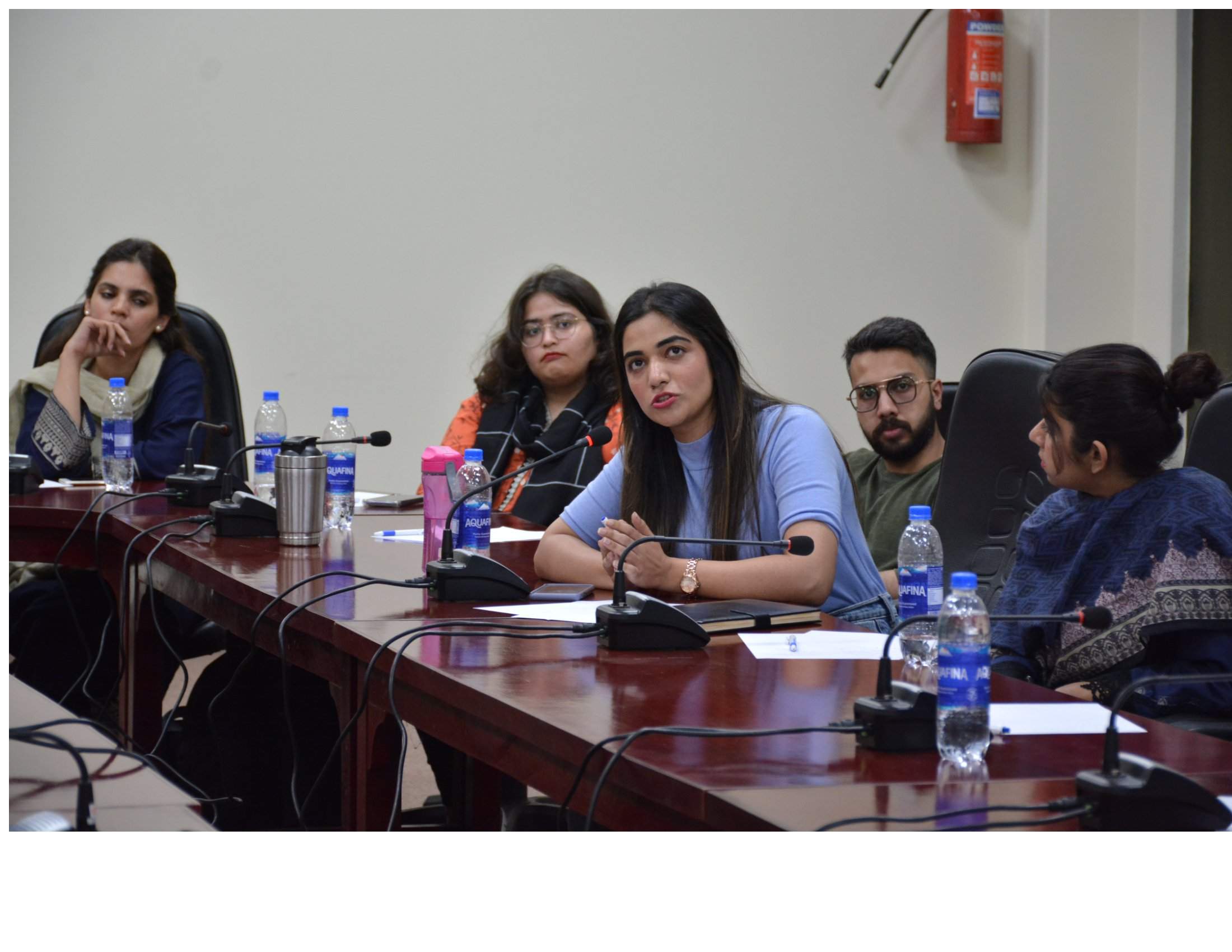
The Changing Nature of Street Crime: Challenges of Governance in Karachi
Seminar
Past Event
Feb 22, 2023 - 4:30 pm |
Feb 22, 2023 - 6:30 pm
Sharjil Kharal
CPPG FCCU
Upcoming Event
On February 22nd, the Centre for Public Policy and Governance (CPPG), Forman Christian College (A Chartered University) hosted a seminar on The Changing Nature of Street Crime: Challenges and Governance in Karachi. Dr. Saeed Shafqat, Professor and Founding Director, CPPG, moderator, introduced the guest speaker Mr. Sharjil Kharal, currently serving as Deputy Inspector General (DIG) in Karachi. In his opening remarks Dr. Saeed Shafqat posed a few questions to the Guest Speaker on changing the nature of street crime in Karachi. He postulated, is this a governance issue or a crime issue? Or does it have something to do with social and cultural patterns in society?
Earlier Mr. Kharal had also served as the Deputy Inspector General of Police in Quetta, Naseerabad, Hyderabad, & Sukkar. He has been a legal advisor with the UN High Commission for Refugees and International Criminal Tribunal for Yugoslavia, Liaison Unit for which he acted as a Head as well. Mr. Kharal has rich academic background and holds a BS in Business Administration from the Edinboro University of Pennsylvania and an LLM degree from the University of Nottingham UK, and an LLB from the University of London. He has an MA in International Relations from the University of Sindh.
Mr. Kharal opened his remarks by identifying some of the key the initiatives that the Sindh Policy has launched to curb crime and improve their capacity. He elaborated in his presentation that there is a dire need to focus on legislation and legislative reforms to prevent street crimes in Karachi. Expressing the efforts all go in vain when it comes to preventing street crime. It is the most commonly experienced crime in Karachi, recurring at an accelerating rate. Consequences of this many police officers and, unfortunately, many civilians have lost their lives on the crossfires. Mr. Kharal remarked that political regimes have not affected the prevention of street crime. During the 2014 Nawaz Sharif regime, incidents such as terrorism, extortion, and murder went down, yet street crime went up.
World Crime index ranks Karachi 106th out of 367 countries with a rising crime rate. The reasoning devised by Mr. Kharal was that 40-50 % of street crimes goes unreported, he attributed that to the people’s distrust of the police.
Second and most important reason for street crimes being rampant use and spread of Narcotics in Karachi. In his analysis he weaved a connection between the use of drugs and involvement in street crime as probable causes of the increase in crime rates. Legislation plays a crucial role in the prevention and decline of the crime rate in Karachi. Both legislations discussed during the presentation by the speaker show potential in the change of nature of street crimes. The change in the substance of narcotics makes it challenging to target the recidivism rates in street crime. The legislation was geared towards improving prosecution and improving conviction. Mr. Kharal pointed out that there are institutional challenges of courts, police, prosecution and parole, and the Bureaucracy due to which the effectiveness of Sindh police has been constrained.
The talk was followed by a stimulating question/answer session, which brought to attention ethnic issues, the gaps between judiciary and police that needed to be filled through interventions.
On behalf of the Rector, faculty and the students Dr. Shafqat thanked Mr. Kharal for an informative and insightful presentation on Karachi Street crime situation and how Sindh government is trying to manage it.


